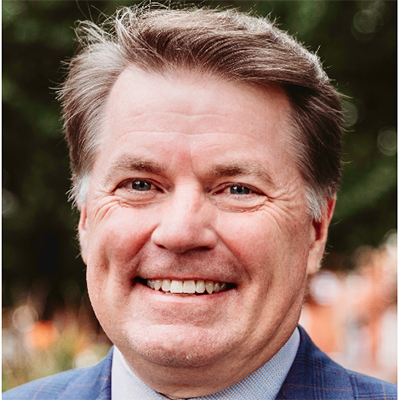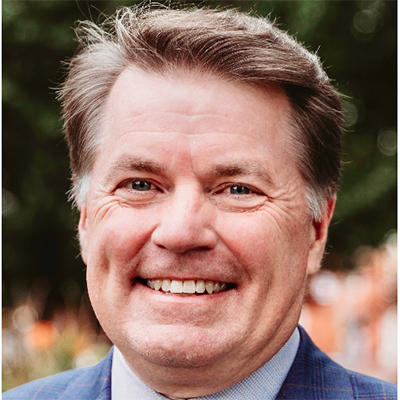
Videos & Webinars
From Confusion to Clarity: Strengthening Your School’s Brand
From confusion to clarity: Strengthening your school's brand

Podcast
Ep. 95: Forming leaders inside and out, exploring CBTE's potential
Competency-based theological education (CBTE) is reshaping how future church leaders are formed – and it’s more than just skills training. In this episode, Dr. Susan Reese of Kairos University and Dr. Nathan Hitchcock, CBTE consultant, discuss how this approach emphasizes character, spiritual formation, and lived practice alongside academics. From mentoring and integration with local churches to assessing “heart” competencies like friendship, rest, and resilience, they also discuss issues like assessment and rigor, and offer reasons why schools may consider CBTE.

Podcast
Ep 94: Lessons to learn from Pathways initiative
As the Pathways for Tomorrow Initiative reaches its midpoint, theological schools are navigating both promising innovations and growing tensions. In this episode, Matt Hufman speaks with Jo Ann Deasy of ATS and Amy Kardash of the In Trust Center about how schools are reassessing mission, sustainability, and alignment.

Podcast
Ep. 93 - Staying ahead of the evolving world of AI in theological education
As the world of artificial intelligence advances in theological education, leaders can stay ahead and find ways forward. In this episode, the Rev. Tay Moss, who has been a leading voice on AI in the Church and theological education, considers how leaders and institutions can engage AI wisely – balancing innovation, ethics, and integrity.

Videos & Webinars
Large-scale Collaboration and Organizational Readiness
Assessing organizational readiness for change and preparing multiple institutions for intensive cooperation.

Podcast
Ep. 92 - Faith, law, and the future: Governance in a shifting regulatory environment
What happens when federal education policy changes, roiling higher education, without specifically mentioning theological education? The Rev. Dr. David Rowe and Law Professor Peter Lake unpack the ripple effects of new regulations, executive orders, and court cases on theological schools. From accreditation challenges to spiritual care for students and the risk of mission drift, this conversation offers thoughtful frameworks for boards and presidents navigating chaos.

Podcast
Ep. 91 Coworkers in the vineyard: Adaptive change and the future of theological collaboration
What if collaboration wasn’t a tactic, but a way of being? In this episode, Greg Henson and Tony Blair of Kairos University discuss their recent article “Coworkers in the Vineyard: A Renewed Spirit of Collaboration Within Theological Education” about collaboration in theological education and challenge assumptions about competition, mission, and governance.

Videos & Webinars
Strategic Shorts: Building Institutional Capacity through Student Readiness
By implementing targeted programs and support systems, institutions can better equip students for academic challenges, thereby strengthening overall institutional effectiveness.

Podcast
Ep. 90 Rethinking ministry formation: Diaconal studies and the future of theological education
Could theological schools be missing a vital piece of ministry formation? Dr. Darryl Stephens joins the podcast to explore diaconal studies — a growing movement that prepares deacons for ministry beyond the pulpit and into the community. With insights from global models and a new open-access volume featuring 21 authors, Stephens invites schools to broaden their mission, extend their reach, and equip more leaders for today’s multifaceted church.

Videos & Webinars
Strategic Shorts: Building Institutional Capacity by Involving Faculty and Staff in Change
Strategies for engaging faculty and staff in institutional change to enhance organizational capacity.

Videos & Webinars
Strategic Shorts: Turning Capacity Building into Compelling Grant Proposals
Pursuing large-scale grants that advance the mission and drive transformation.

Podcast
Ep. 89 - Rooted and Ready: Strengthening Theological Schools Amid Regulatory Upheaval
In a time of political shifts and regulatory uncertainty, the Good Governance podcast dives into how theological school leaders can respond with clarity and authenticity. Governance expert the Rev. Dr. David Rowe and law professor Peter Lake, a higher education policy expert, discuss navigating potential changes to federal education policy, including impacts on Title IV, Title IX, and accreditation. They offer practical guidance for boards and presidents — emphasizing mission alignment, shared governance, and measured leadership. This episode is essential listening for those guiding faith-based institutions through complex and fast-changing landscapes.